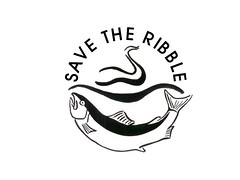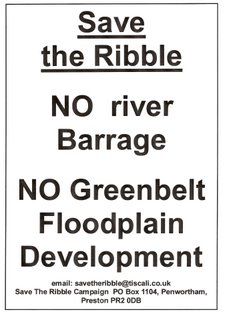This is a repost of a great article from
'American Rivers': It's really great to see lots of dams being 'deconstructed' and rivers set free to flow free and clean, the way nature intended:
2011: The Year of the River
Posted on January 5, 2011
Amy Souers Kober
Senior Director of Communications
Hold on to your paddles, because 2011 is going to be a thrilling year. From Maine to Washington, we will be celebrating a river renaissance as waters long-dammed come back to life.
2011 will see the nation’s largest river restoration efforts to date. Unprecedented dam removal projects on Maine’s Penobscot, Washington’s Elwha and White Salmon, and Maryland’s Patapsco will make 2011 the Year of the River. The benefits of these dam removals to Native American tribes, water quality, fish and wildlife, and local economies will be enormous.
As Patrick McCully writes in Silenced Rivers, "Nothing alters a river as totally as a dam. A reservoir is the antithesis of a river - the essence of a river is that it flows, the essence of a reservoir is that it is still."
By removing these dams we will restore rivers that are the lifeblood of the land. We will learn from tribes like the Penobscot, Yakama, and Lower Elwha Klallam as they reconnect their cultures and traditions with the newly free-flowing rivers. We will give endangered salmon and other wildlife a fighting chance. We will prove that a healthy environment and strong economy go hand in hand.
And hopefully we will inspire others to restore rivers in their own communities.
Here’s a glimpse of some of the exciting projects coming up in the Year of the River:
Elwha River, Washington
Deconstruction begins September 2011
The Elwha River flows out of the mountainous heart of Olympic National Park to the Strait of Juan de Fuca in Puget Sound. It once supported six species of Pacific salmon and steelhead and has been the home of the Lower Elwha Klallam Tribe since time immemorial. Dismantling the Elwha and Glines Canyon dams will allow the river to flow freely for the first time in 100 years, restoring over 70 miles of salmon and steelhead habitat. At 210 feet tall, Glines Canyon Dam will be the tallest dam ever removed. American Rivers helped secure more than $50 million in federal funding through the American Recovery and Reinvestment Act for Elwha River restoration.
White Salmon River, Washington
Deconstruction begins October 2011
The White Salmon River flows from the slopes of Mt. Adams to the Columbia River. Portions of the river are designated as a Wild and Scenic or are protected as part of the Columbia Gorge National Scenic Area. American Rivers has worked for over ten years with our partners including the Yakama Indian Nation to lead the effort to remove the 95-year old, 125-foot Condit Dam. Removal of the dam will restore access to 33 miles of habitat for steelhead and 14 miles of habitat for chinook salmon. The river is recognized as a premier whitewater destination—ten outfitters run commercial trips on the river, and at least 25,000 boaters use the river each year. Dam removal will create additional recreation opportunities.
Penobscot River, Maine
Deconstruction begins 2011
The Penobscot is New England’s second largest river system, home to the Penobscot Indian Nation. The river is known for its historically abundant fisheries, and for years the first Penobscot River salmon of the season was given to the President of the United States. As a member of the Board of Directors, American Rivers is working with the Penobscot River Restoration Trust to remove two dams on the Penobscot (Veazie and Great Works) and install a bypass channel for fish passage at Howland Dam. The project will significantly improve access to nearly 1,000 miles of river habitat while maintaining current power generation.
More than 15 dams have been removed in Maine since 1998, restoring more than 465 miles of river. Most notable was the 1999 removal of Edwards Dam on the Kennebec River.
Patapsco River, Maryland
Deconstruction began September 2010, ongoing
American Rivers is working with partners to remove several dams on the Patapsco, one of the Baltimore area’s hidden jewels. Francis Scott Key wrote the lyrics to the Star Spangled Banner at the mouth of the Patapsco, and today the river supports fish and wildlife and offers residents fishing, boating, and other recreation opportunities.
American Rivers was awarded $4 million in economic stimulus funding for the removal of the Union and Simkins dams. We are also advocating for the removal of Bloede Dam, which has been responsible for several deaths over the years, and presents an ongoing danger to swimmers. Removal of these dams will restore fisheries and contribute to the recovery of the Chesapeake Bay. Once the river is restored, we hope to work with local partners to promote recreation and education along the Patapsco.
Dam removal across the country:
In addition to these high-profile river restoration efforts, many other dams are scheduled for removal around the country in 2011. These projects might not have the same kind of size and spotlight as the ones listed above, but their benefits to local communities in terms of public safety, flood management, clean water, wildlife, economics, and recreation are significant.
Watch our blog for Year of the River updates, and join the celebration on Facebook and Twitter.
It’s going to be a year to remember!
Labels: American Rivers, dam, deconstruction of dams





























